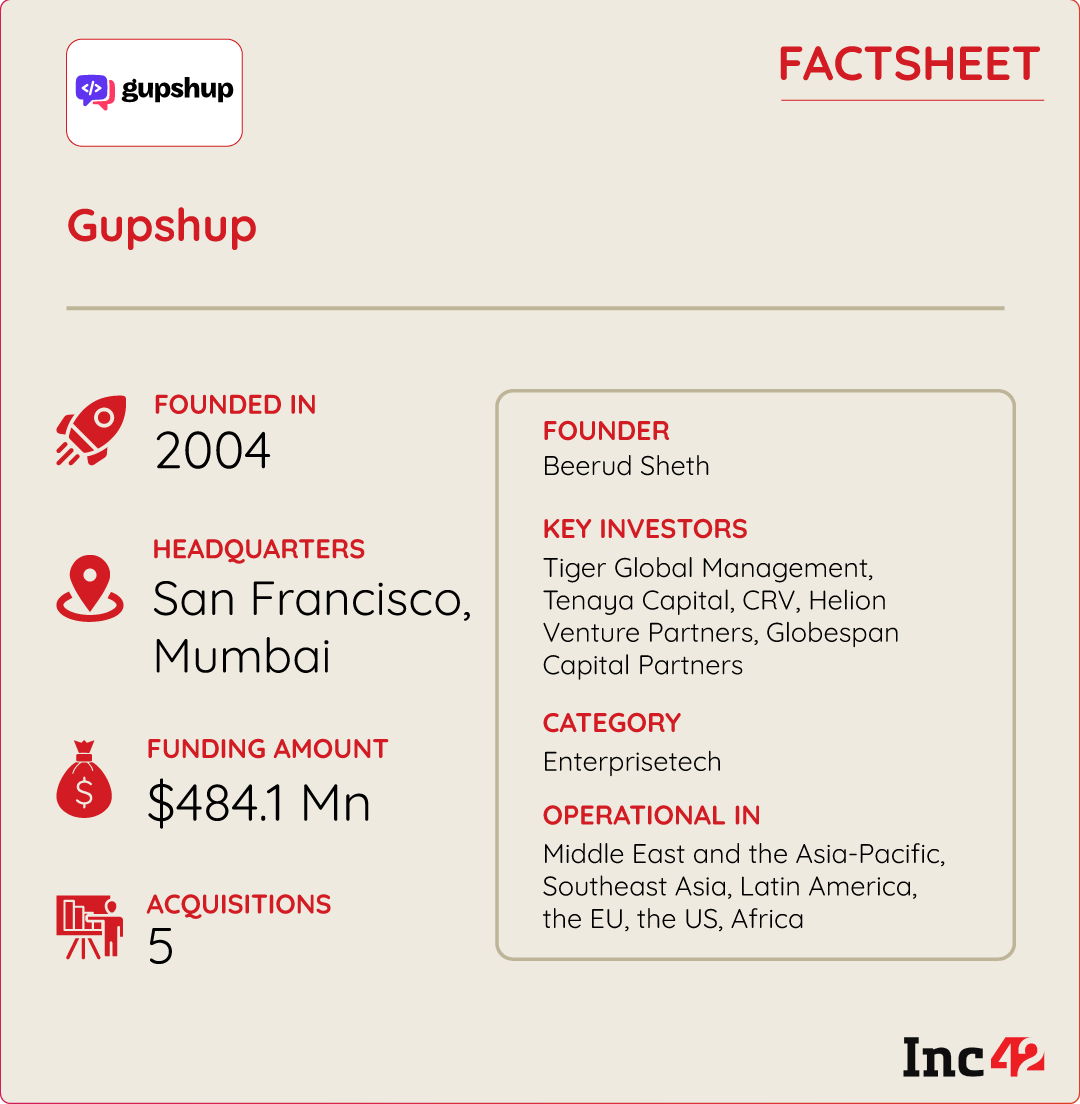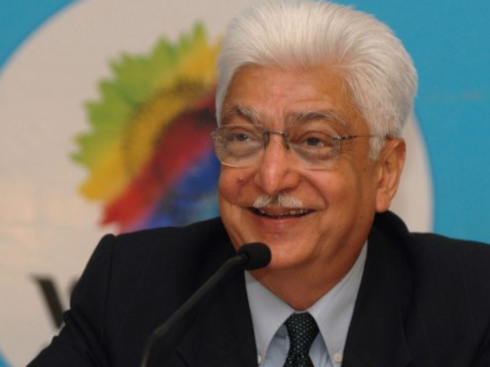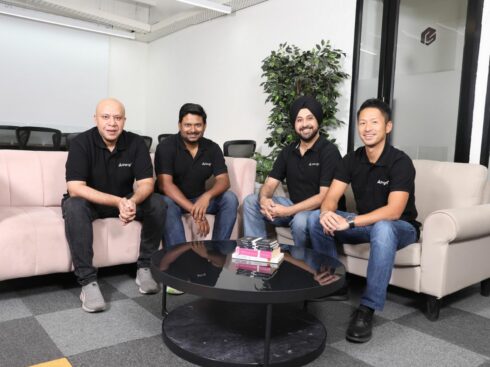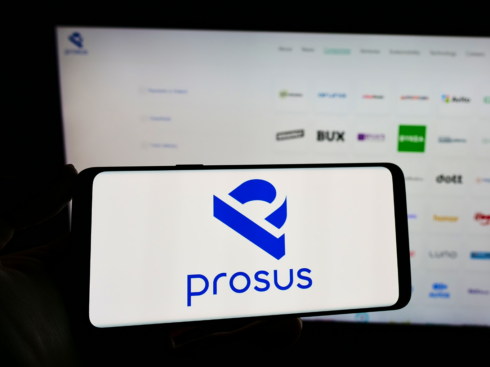SUMMARY
Gupshup entered the UAE market in September 2021 by acquiring Knowlarity Communications and claims to have grown 3x in the MENA region
At the group level, Gupshup’s consolidated revenue grew 55% YoY in FY23 and now stands close to $300 Mn
The Mumbai and San Francisco-based SaaS unicorn is looking to double its growth in the MENA region by FY24
Beerud Sheth, a technology major from MIT and IIT-Bombay, wore many hats. He had an extensive career as a financial industry professional and launched Elance, a services marketplace, before setting up gupshup
The platform uses a single API to automate business operations across 30+ channels, including WhatsApp, Instagram, Viber, Telegram, voice, SMS, web and app, among others. It has also launched ACE LLM, which uses generative AI (genAI) to transform customer experience.
Gupshup is now catering to more than 45K customers worldwide and expanding rapidly into various international markets such as the Middle East and the Asia-Pacific, Southeast Asia, Latin America, the EU, the US and Africa. The Mumbai- and San Francisco-based SaaS player entered the unicorn club in April 2021.
In September 2021, the company forayed into the UAE market and later boosted its presence by acquiring Knowlarity Communications (the target company was operational there) in 2022, which provides cloud telephony, contact centre automation (AI-based voice assistants, chatbots and video solutions) and speech analytics. It served more than 6K customers in 65 countries at the time of acquisition.
“India is our oldest market and 60% of Gupshup’s business still comes from there. However, the UAE market has contributed nearly 4-5% of our revenue in the past 18 months. Gupshup’s monthly recurring revenue (MRR) has tripled in the MENA region due to the rapid adoption of its products,” said Mukul Yadav, senior director and head of the MENA region. Inc42 had an exclusive conversation with him on the sidelines of this year’s GITEX Global held in Dubai.
According to Yadav, the Middle East is the third-largest market for Gupshup after India and LatAm. Apart from Dubai, where Gupshup has a strong presence, the SaaS provider also operates in the Kingdom of Saudi Arabia (KSA), the Kingdom of Bahrain, the State of Qatar and the State of Kuwait.
Its most prominent clients in the region include Abu Dhabi Commercial Bank (ADCB), Emaar, Talabat, Bayut, Lulu Exchange, Apparel Group, Sharaf DG and Qatar Islamic Bank, among others.
Gupshup also works closely with ‘big tech’ companies such as Meta and has set up a GPT-based chatbot for Dubai Electricity & Water Authority (DEWA). The bot helps DEWA customers with quick and intelligent responses to frequently asked questions like bill paying, address change and requirements for new connections.
“The number of companies using our solutions has grown 3x in the MENA region,” said Yadav. “Our clients range from BFSI, telecom and retail to new-age tech industries like on-demand food delivery. Batelco (Bahrain Telecommunication Company) and Qatar’s Ooredoo, two leading telcos in the region, are our clients.”
The SaaS unicorn is looking to double its growth in the MENA region by FY24.

Decoding Two Years Of Gupshup Growth In The MENA Region
Although Gupshup has not yet disclosed its consolidated FY23 results, Yadav said that at the group level, its consolidated revenue grew by 55% YoY in FY23 and now stands close to $300 Mn. Gupshup’s total revenue in FY22 (ended March 2022) reached INR 1,140.7 Cr, up 53% from INR 747.6 Cr in the previous fiscal. However, its consolidated net profit narrowed by 24% YoY to INR 39.9 Cr, from INR 52.5 Cr in FY21, due to an expenditure surge.
Yadav emphasised that 2021 and 2022 (calendar years) were a period of aggressive growth for Gupshup. The company entered new markets like the UAE and invested in as many as five acquisitions – OneDirect, AskSid Technology Solutions, Active.ai, Knowlarity Communications and Dotgo – all of which were successfully integrated.
Operating in the UAE has its challenges, though. Although earnings are higher in the MENA region, so are the costs, said Yadav. But compared to India, businesses are likely to see a decent hike in revenue.
“While India is a large volume market, the middle east is a high value market. The WhatsApp messaging cost (as offered by Meta) is higher for middle east in terms of dollar value,” he added.
Gupshup’s UAE team has now grown to 10 people and more people are getting hired in Saudi Arabia and other countries of the MENA region.
Strategies And Solutions That Strike Gold
The MENA region boasts a large number of ultra-high-net-worth individuals (UHNWI), family offices and global business groups like Emaar that look to benefit their close-knit communities in concrete, quantifiable ways. When Gupshup entered the market, it realised that other companies in the region were already offering similar solutions and most of them had long-term contracts with their existing customers.
“Breaking into that community posed a major challenge, but we also realised something vital. We know by now that India is more price-sensitive, while the UAE is more product-sensitive,” said Yadav.
Besides, the Dubai government is eager to embrace the latest technology trends such as predictive and generative AI. (For context, ChatGPT is just one component of the humungous genAI ecosystem.) The authorities here have allocated funds and different departments are carrying out the implementation. Dubai has an AI minister, quite a rarity, and it is always planning five to 10 years in advance, he added.
That the UAE is diving deep into innovation makeover was evident at Gitex Global 2023, where Inc42 interacted with H.E. Omar Sultan AlOlama, the UAE’s minister of state for AI, digital economy and remote work applications, and the chairman of Dubai Chamber of Digital Economy. AlOlama pointed out that the UAE and India have historical ties across different fields. Today, both countries are building many bridges on the AI front, and the Emirates can collaborate with India on critical AI fields.
He also believes there are very few use cases which AI cannot solve today. However, the question here is how one can use AI responsibly.
Given these ground realities, the Gupshup team cracked the market dynamics before long and developed strategies that worked in its favour in the past 18 months. Here is a look at the company’s business principles:
Pushing the product, not the price: According to Yadav, when Gupshup started operating aggressively in the region, it never pushed the pricing or offered a basic product (to match customers’ pricing criteria). Instead, potential customers were asked to try its solutions first.
To add value to simple messaging solutions, Gupshup offered 20 additional features, such as AI chatbots and multiple journeys on WhatsApp chat. Plus, it kept pushing customised and innovative products to meet customer requirements across industries. Gupshup is also working with Meta on entirely new solutions and features, and Meta will soon launch these.
Adopting a community-led approach: When in Rome, do as the Romans do. The company remembered the adage and adopted it to increase traction. When the team bagged more than 10 customers, it approached them to become Gupshup’s advocates, and soon, it managed to reach out to hundreds of companies in the MENA region.
“That’s what is different from India. Sizewise, India is huge. So, it is difficult to leverage that community thing, which works in the UAE. We used that community to [kind of] push our products in the best way possible. That’s how everything changed in the past two years,” said Yadav.
Betting big on new-age tech solutions works: As the UAE and the entire MENA region are aggressively adopting new-age technology solutions, Gupshup’s WhatsApp and AI bet worked like a charm. For instance, its offerings around conversational marketing and conversational support are in great demand among ME customers.
Companies primarily look for Gupshup’s services to build brand/product awareness, generate leads, engage with existing users, offer personalised deals and discounts, provide 24×7 support and streamline operations using AI.
Yadav mentioned an interesting use case for ticket booking on WhatsApp. Gupshup worked with a leading amusement park operator in Dubai to enable easy ticket booking for popular activities, thus ensuring greater visitor convenience.
“WhatsApp came to India first (2012), and we have been using it for almost a decade. But in the Middle East, especially in the UAE, the pick-up started only two and a half years ago. Now, people are quite tech-savvy and they want these solutions. They might have started late, but they are moving really fast,” he added.
The Growth Ahead
The company aims to accelerate its newfound growth trajectory across the MENA region in the near future. As Yadav emphasised, Dubai-based businesses are expanding their operations in Abu Dhabi, Qatar, Saudi Arabia and other countries, providing Gupshup an excellent opportunity to grow its global footprint further.
Besides, the UAE has a huge expat base, making it easier for companies to build an open culture. Having its solutions in more than 30 languages also adds to the many advantages Gupshup has in the region.
The SaaS player also claims it has entered China as part of its ongoing effort to grow globally.
To sum up the growth potential, Yadav cited what Gupshup CEO Beerud Sheth said at a recent conference in Mumbai.
“There is a difference between an autorickshaw and a car. An autorickshaw can get you from point A to point B, but when you get in the car, you can go on the highway, switch on the AC and drive in cruise mode. You can do so many extra things. People get excited about it. They want more. That’s the thing with this market. And that’s what Gupshup is offering them.”


























